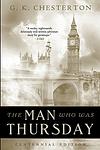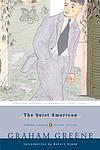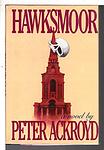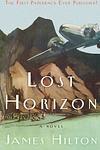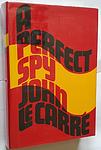The Greatest British "Psychological, Fiction" Books Since 1900
Click to learn how this list is calculated.
This list represents a comprehensive and trusted collection of the greatest books. Developed through a specialized algorithm, it brings together 300 'best of' book lists to form a definitive guide to the world's most acclaimed books. For those interested in how these books are chosen, additional details can be found on the rankings page.
Genres
The Psychological genre of books typically explores the inner workings of the human mind and emotions, often delving into complex and sometimes disturbing psychological states. These books may focus on mental illness, trauma, relationships, or personal growth, and often challenge readers to confront their own beliefs and perceptions. Psychological books may be suspenseful, thought-provoking, and emotionally intense, offering readers a deep and often unsettling glimpse into the human psyche.
Countries
Date Range
Reading Statistics
Click the button below to see how many of these books you've read!
Download
If you're interested in downloading this list as a CSV file for use in a spreadsheet application, you can easily do so by clicking the button below. Please note that to ensure a manageable file size and faster download, the CSV will include details for only the first 500 books.
Download-
26. The Secret Agent by Joseph Conrad
"The Secret Agent" is a dark political satire set in London in the late 19th century, revolving around a secret agent who is also a shopkeeper, his anarchist friends, and his family. The story unfolds as the agent is coerced by his foreign employers to orchestrate a bombing in a bid to provoke a political response, but the plan goes disastrously wrong, leading to tragic consequences and a deep exploration of themes such as anarchism, espionage, terrorism, and betrayal.
-
27. A Handful of Dust by Evelyn Waugh
Set in the 1930s, this novel explores the disintegration of the marriage of an upper-class English couple, Tony and Brenda Last. Brenda embarks on an affair with a social climber, John Beaver, leading to the demise of her marriage. After their son's tragic death, Brenda demands a divorce and a large portion of Tony's estate. Tony, heartbroken, embarks on an ill-fated expedition to the Brazilian jungle. The novel critically examines the moral decay of British aristocracy and society.
-
28. Parade's End by Ford Madox Ford
The novel chronicles the life of Christopher Tietjens, an officer in the British Army during World War I, and his complex relationships with two women: his adulterous wife Sylvia and a young suffragette named Valentine. The story is set against the backdrop of a changing society and the devastation of war, exploring themes of duty, honor, and the struggle between traditional values and modernism.
-
29. The Heart of the Matter by Graham Greene
The novel follows the story of a British colonial police officer stationed in Sierra Leone during World War II. He is an honest and diligent man but finds himself in a moral crisis when he is torn between his duty and his love for another woman. He is caught in a spiral of deceit, corruption, and betrayal that leads to his tragic end. The narrative delves into themes of guilt, faith, betrayal, and moral paradoxes.
-
30. The Wasp Factory: A Novel by Iain Banks
The novel is a dark and disturbing tale of a 16-year-old boy named Frank who lives on a secluded island with his eccentric father. Frank, who has killed three children in his past, spends his time engaging in violent rituals and maintaining his "Wasp Factory," a barbaric contraption he uses for divination. The narrative takes a turn when his older brother, who is institutionalized, escapes and heads home, leading to shocking revelations about their family's past and Frank's identity.
-
31. The Man Who Was Thursday by G. K. Chesterton
"The Man Who Was Thursday" is a metaphysical thriller that revolves around a poet turned detective who infiltrates a secret society of anarchists in London. Each member of the society is named after a day of the week, and the protagonist becomes 'Thursday.' As he delves deeper, he discovers that the other members are also undercover detectives, each unaware of the others' true identities. The narrative explores themes of order and chaos, faith and unbelief, with a surprising twist regarding the identity of the society's leader, 'Sunday.'
-
32. The Quiet American by Graham Greene
Set during the French colonial war in Vietnam, this novel follows a British journalist and a young American idealist who become friends and find themselves in a love triangle with a Vietnamese woman. As the war escalates, the journalist becomes disillusioned with the American's naïve political views and the destructive impact of foreign intervention. The story is a critique of American involvement in Vietnam, exploring themes of love, friendship, and moral ambiguity.
-
33. The Well of Loneliness by Radclyffe Hall
"The Well of Loneliness" is a groundbreaking novel that explores the life of a woman named Stephen Gordon, who identifies as a lesbian in early 20th century England. The story delves into the societal and personal struggles Stephen faces due to her sexual orientation, including isolation, rejection, and the struggle for acceptance. The novel is a plea for understanding and tolerance, shedding light on the challenges faced by the LGBTQ+ community during a time when their identities were largely misunderstood and stigmatized.
-
34. Saturday Night and Sunday Morning by Alan Sillitoe
The novel provides a gritty, realistic portrayal of working-class life in post-war British society, as seen through the eyes of a rebellious young factory worker in Nottingham. The protagonist, a hard-drinking, womanizing anti-hero, navigates life's challenges and societal expectations, while seeking personal freedom and meaning beyond the mundanity of his labor-intensive job. His weekend binges and love affairs contrast starkly with the stifling conformity of his weekday routines, reflecting the broader social and cultural tensions of the time.
-
35. My Cousin Rachel by Daphne du Maurier
The novel revolves around a young Englishman who seeks the truth about his cousin's mysterious widow, suspecting her of foul play in his cousin's untimely death. As he becomes entangled in the widow's seductive charms, his initial suspicions transform into a complex blend of attraction, jealousy, and uncertainty. Set against the backdrop of a grand Cornish estate, the story delves into themes of obsession, inheritance, and the blurred lines between passion and poison, leaving readers to ponder the true nature of the enigmatic woman at its center.
-
36. Under the Net by Iris Murdoch
"Under the Net" is a novel featuring a struggling writer living in London who is forced to reevaluate his life after being evicted from his flat. He embarks on a series of misadventures, meeting a variety of eccentric characters and getting involved in a dog-napping scheme. Throughout his journey, he contemplates philosophical ideas about truth, art, and personal freedom, ultimately leading to his self-discovery and transformation.
-
37. The Children of Men by P. D. James
Set in a dystopian future where mankind has become infertile, the novel centers on a history professor who becomes involved with a group of revolutionaries seeking to overthrow the oppressive government. As the world descends into chaos due to the impending extinction of the human race, a miraculous pregnancy offers a glimmer of hope. The professor must protect the pregnant woman and navigate the dangerous political landscape, while grappling with the implications of a world without children.
-
38. The Line of Beauty by Alan Hollinghurst
Set in the 1980s during the era of Margaret Thatcher's conservative government in Britain, this novel follows the life of a young gay man named Nick Guest. Coming from a middle-class background, he moves into the home of his wealthy friend's family and becomes infatuated with the opulence and power of the upper class. As he navigates his way through this new world, he also explores his sexuality, all while dealing with the societal and political implications of the AIDS crisis.
-
39. Hawksmoor by Peter Ackroyd
"Hawksmoor" is a novel that alternates between the 18th century and the 1980s, focusing on two characters both named Nicholas Dyer and Nicholas Hawksmoor. Dyer, an architect in the 18th century, constructs seven churches in London, each with a dark and sinister secret. In the 1980s, Hawksmoor, a detective, investigates a series of murders that occur in the same churches. The narrative explores themes of history, time, architecture, and supernatural elements, creating an eerie and atmospheric tale.
-
40. A Judgement In Stone by Ruth Rendell
"A Judgement In Stone" is a gripping psychological thriller that unravels the tragic events surrounding the murder of the wealthy Coverdale family. As the investigation unfolds, the true motives and dark secrets of the family's housekeeper, Eunice, are gradually revealed, leading to a shocking climax. With its intricate plot and complex characters, the book explores themes of class divide, social isolation, and the destructive power of secrets.
-
41. A High Wind in Jamaica by Richard Hughes
This novel tells the story of a group of children who are accidentally kidnapped by pirates in the Caribbean after a hurricane destroys their home. The children adapt to life on the sea and form a unique bond with the pirates, causing them to question societal norms and morality. The book explores themes of childhood innocence, the loss of innocence, and the blurred lines between civilization and savagery.
-
42. Lost Horizon by James Hilton
This novel tells the story of four Westerners who are kidnapped and taken to the mysterious Shangri-La, a utopian lamasery high in the mountains of Tibet. As they get to know their captors and the peaceful way of life in the lamasery, they must each decide whether or not they want to stay in this idyllic paradise that seemingly offers immortality, or try to escape back to their former lives. The story explores themes of time, happiness, and the often complex choice between the familiar and the unknown.
-
43. The Bell by Iris Murdoch
"The Bell" is a novel that explores the dynamics of a lay religious community living next to an enclosed order of nuns in the English countryside. The story is centered around the arrival of a new bell for the abbey, the discovery of an old bell in the lake, and the interplay between the community's members, their individual struggles, and their shared faith. The book delves into themes of love, guilt, sexuality, and the search for personal redemption.
-
44. The Return of the Soldier by Rebecca West
"The Return of the Soldier" is a poignant story set during World War I, revolving around a British soldier suffering from shell shock-induced amnesia. Upon his return home, he does not remember his wife or his comfortable life of privilege, but instead, recalls his first love and the modest past they shared. The narrative explores the complex dynamics and emotional turmoil experienced by the soldier, his wife, his cousin, and his former sweetheart as they grapple with the consequences of war, memory, and class distinctions.
-
45. The Heat of the Day by Elizabeth Bowen
Set in London during World War II, "The Heat of the Day" is a story about a love triangle between Stella Rodney, her lover Robert Kelway, and Harrison, a man who claims to be an intelligence agent. Harrison informs Stella that Robert is selling secrets to the enemy, and in exchange for his silence, he wants Stella all to himself. The novel explores themes of trust, deceit, and the complexities of love against the backdrop of a city under siege.
-
46. A Perfect Spy by John le Carré
This espionage novel follows the life of Magnus Pym, a high-ranking British intelligence officer who disappears after attending his father's funeral, causing a massive manhunt. As the intelligence service scrambles to find him, the narrative dives into Pym's past, revealing his complex relationship with his conman father and his recruitment into the world of espionage. The story is a complex exploration of betrayal, identity, and the blurry line between loyalty and deception.
-
47. A Dark Adapted Eye by Barbara Vine
"A Dark Adapted Eye" is a psychological thriller that delves into the complex dynamics of a family haunted by a dark secret. The story follows the life of Faith, who is drawn into investigating her aunt's execution for murder years ago. As she unravels the truth, she uncovers a web of deceit, jealousy, and obsession that has plagued her family for generations. With richly developed characters and a gripping narrative, the novel explores themes of family loyalty, the destructive power of secrets, and the lengths people will go to protect their own.
-
48. A Fatal Inversion by Barbara Vine
In this psychological thriller, a group of young people's idyllic summer spent at a secluded English country house takes a dark turn when they discover a baby's body buried in the garden. Years later, the consequences of that summer resurface as the makeshift family's secrets begin to unravel, threatening to expose the truth behind the infant's death. The narrative weaves between past and present, exploring themes of guilt, memory, and the lengths to which people will go to protect their seemingly perfect lives from the stains of past sins.
-
49. The Black Prince by Iris Murdoch
"The Black Prince" is a captivating novel revolving around a middle-aged Londoner who falls passionately in love with the daughter of a close friend. As he navigates through the complexities of love, he experiences a profound transformation of character, leading him to question the nature of love, art, and personal identity. The story is told in a postmodern style, with multiple narrative perspectives, and explores themes of love, obsession, self-deception and psychological manipulation.
-
50. Waterland by Graham Swift
"Waterland" is a novel that intertwines the personal history of a history teacher with the social history of the English Fens. The narrative alternates between the past and the present, exploring themes of history, memory, and storytelling. The protagonist's personal story of love, tragedy, and madness is inextricably linked to the history of the Fens, a marshy region in eastern England. The novel also addresses the question of whether history is a cyclical process or a linear one, and how the past influences the present.
Reading Statistics
Click the button below to see how many of these books you've read!
Download
If you're interested in downloading this list as a CSV file for use in a spreadsheet application, you can easily do so by clicking the button below. Please note that to ensure a manageable file size and faster download, the CSV will include details for only the first 500 books.
Download




